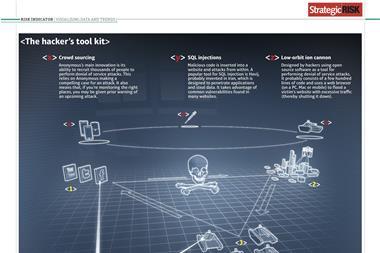Corporate ethics can be a hard thing to get right. All too often in the business world the desire to make money overrides ethical considerations and employees witnessing misconduct often keep quiet for fear of retaliation

As the info-graphic here shows people find it easier to abdicate their moral responsibilities in a corporate environment. In other words they are more comfortable behaving immorally at work than they are in their personal lives (see “Ethics at work versus ethics at home”). That may be simply the result of human behaviour and our ability to abdicate responsibility with the reasoning that we are “just following orders”.
“Life is like a jigsaw puzzle. When you come to work, the pieces of your conscience all get jumbled up,” says Roger Steare, a business culture consultant who goes by the pseudonym of the “Corporate Philosopher”. An online personality test (available at moraldna.org) that reveals moral values and the way people prefer to make decisions shows a marked difference in our ethical behavior in our professional and personal lives, he says.
Several other business and academic studies seem to confirm this supposition. A recent survey of 525,000 employees by the Corporate Executive Board (CEB), for example, showed that, while an average out of 10,000 employees 15 people witness harassment and three spot accounting “issues” each week, only about 20% of these issues are actually reported to management. So only a handful of employees who witness misconduct in their organisations actually raise their concerns. This may be because they’re unsure whether the misconduct witnessed is even worth reporting or they fear retaliation for their actions.
Whether employees report misconduct or not will often depend on the mindset that senior executives are conveying, CEB Managing Director Sarah Schwab says.
“Employees will react to whether unethical behaviour is tolerated in their department or not,” says Schwab. “If there is a specific framework within a company some of the pressure employees and executives are exposed to today is taken away.”
As the info-graphic opposite shows whistleblowing is one of the top ethical issues of concern to UK businesses. But the number one concern right now is bribery and corruption, perhaps unsurprisingly given the recent implementation of the UK Bribery Act, which includes a tough new compliance regime.
Ultimately, executives being proactive about building a stronger corporate culture will have a positive effect on the company’s overall performance. Companies with the highest integrity outperform their peers in terms of productivity gains and better strategic alignment, according to the CEB.
If companies really want to instill an ethical culture they will offer clear guidance to employees on how to resolve a dilemma, set clear expectations about what is expected of them and what behavior is definitely not tolerated. They should also hold employees at all levels in the company consistently accountable and share details about detected and punished misconduct.




















No comments yet